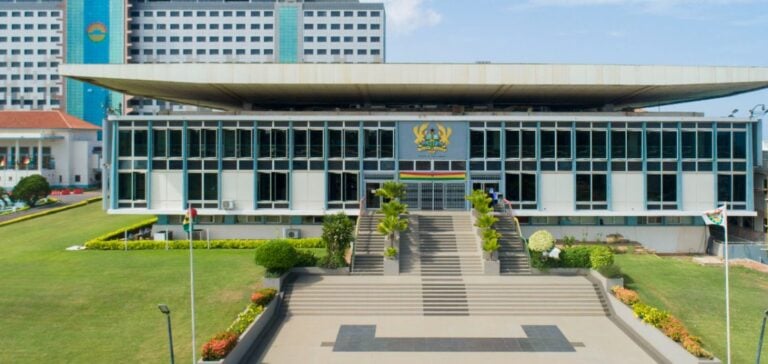Ghana is exploring new options to reduce its fuel import costs, seeking to replace part of its European imports with a regional supply from Nigeria. Currently, the country relies heavily on European suppliers, leading to high logistical costs associated with maritime transport, particularly from Rotterdam. These costs significantly impact Ghana’s overall energy expenditures, which amount to approximately $400 million per month.
During the OTL Africa Downstream conference in Lagos, Mustapha Abdul-Hamid, president of Ghana’s National Petroleum Authority (NPA), discussed the possibility of sourcing fuel from the Dangote refinery. Located in Nigeria, this refinery is one of Africa’s largest, with a planned production capacity of 650,000 barrels per day (bpd) once fully operational. Abdul-Hamid indicated that this project could enable Ghana to reduce its import costs by relying on a regional source of petroleum products, thus making Ghana’s energy sector more resilient to fluctuations in international costs.
Economic Benefits for Ghana
The proximity of the Dangote refinery could offer Ghana a cost-effective alternative to European suppliers by decreasing transport fees and reducing reliance on the European market. If Ghana opts for this option, it may lead to lower fuel prices and lower costs for essential goods, whose transport costs affect final consumer prices.
The Dangote refinery is expected to reach full capacity by early 2025 and could then supply not only the Nigerian market but also several other markets in Africa. With this new fuel source, Ghana hopes to limit the use of foreign currency in its transactions, a significant challenge for many African countries whose currency reserves are often required for essential imports. Abdul-Hamid emphasized that this strategy could foster a more stable economy for Ghana while leveraging regional infrastructure for optimal energy resource management.
Potential Regional Impact
The Dangote project could have positive effects beyond Ghana’s borders. Nigeria, through this refinery, would position itself as a key supplier for the West African market, creating an energy supply network at the regional level. This would promote energy interconnection between West African countries, an objective supported by organizations such as the Economic Community of West African States (ECOWAS).
Abdul-Hamid mentioned the possibility of reducing dependence on foreign currency for energy transactions in Africa. In the long term, some experts envision the creation of a common currency for intra-African energy exchanges. While this project remains theoretical, it reflects the growing desire of African countries to strengthen their energy independence and optimize their regional trade relations.
Prospects and Limitations
The success of this potential partnership between Ghana and the Dangote refinery will depend on several factors, including the political and economic stability of the region, fuel supply management, and the capacity of local infrastructure to absorb the planned production volumes. If successful, this initiative could inspire other African countries to invest in regional projects, contributing to a more integrated and sustainable energy market for Africa.
The Dangote refinery represents a strategic project for Nigeria and potential partners like Ghana, but its full impact on the African market will only be measurable once it is fully operational. This development could also encourage new regional collaborations in other strategic sectors, an asset for the African economy in a constantly evolving global context.






















